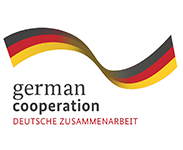In recent years, Tunisia has witnessed an increasing growth in start-up innovation thanks to its regulatory framework, the Start-up Act. By prioritising entrepreneurial culture and digital transformation, the Start-up Act has positioned Tunisia as an important hub in the African tech ecosystem. Home to at least 41 tech hubs, Tunisia was ranked 6th based on the “African Tech Ecosystems of the Future 2021/22”, a report by Briter Bridges.
Nevertheless, efforts should be consolidated to preserve this nascent potential and establish Tunisia as a benchmark in the digital scene. As demonstrated in The Global Entrepreneurship and Development Institute’s latest report, Tunisia was ranked 80 out of 116 investigated countries in the Digital Platform Economy index, measuring the correlation between digitalisation maturity and the entrepreneurial ecosystem at the country level. This demonstrates that there is considerable room for improvement to pave the way for a flourishing innovation ecosystem.
The GSMA in Tunisia
To accelerate the digital development of Tunisia’s thriving ecosystem, GSMA Mobile for Development (M4D) has partnered with the Gemeinschaft für Internationale Zusammenarbeit (GIZ) to:
- Stimulate the mobile platform economy as a new business model across relevant sectors in Tunisia, connecting supply with demand and in doing so, creating more employment opportunities, formalising the informal economy and creating decent work opportunities;
- Support the Tunisian government and society in the COVID-19 pandemic’s recovery phase and building its resilience to future crises;
- Assist Tunisian operators in reducing the mobile internet usage gap; and
- Advocate for the development of a thriving mobile financial services ecosystem.
Through this collaboration, the GIZ and the GSMA Ecosystem Accelerator programme have launched a Mobile Innovation Lab, as part of the Tunisian Digital Transformation Center, implemented by the GIZ.
A major task of the Mobile Innovation Lab has recently been to landscape the Tunisian economic sectors that could benefit from the digital platform economy and contribute to the socio-economic development of the country. This research also looks at the potential benefits from digital platforms in developing key sectors as well as the maturity of the sector vis-à-vis digitalisation.
In order to validate the findings of the landscaping research and to operationalise it, the GSMA and GIZ Tunisia hosted a meeting with selected stakeholders representing public and private sectors, incubators, local telecom operators and start-ups, to present 12 sectors for further research with the highest potential for impact on the Tunisian economy. Based on their expertise, thought leadership, and strong contribution to Tunisia’s entrepreneurial ecosystem, the advisory board members have provided feedback and recommendations on the final selection for six sectors according to their readiness and potential impact on driving socio-economic growth in Tunisia.
Meet the Advisory Board members
Insights from the Advisory Board members’ experts
The platform economy model has transformed and revolutionized several sectors in emerging markets. From telehealth to e-commerce, these digital platforms create a wider social impact by making access to services for disadvantaged populations a reality but also accelerate economic development by activating commercial activity. Some members of the Advisory Board even consider that the platform economy has become a viable tool to stimulate value production and advance the innovation process. The platform economy model has transformed and revolutionized several sectors in emerging markets. From telehealth to e-commerce, these digital platforms create a wider social impact by making access to services for disadvantaged populations a reality but also accelerate economic development by activating commercial activity. Some members of the Advisory Board even consider that the platform economy has become a viable tool to stimulate value production and advance the innovation process.
But to effectively leverage the power of these platforms, appropriate measures must be put in place to achieve socio-economic prosperity:
- Provide practical incentives to foster widespread use of digital platforms whether from the supply or the demand side;
- Establish a favourable business climate that fosters competition and advances the development of local start-ups;
- Institute an enabling regulatory framework that aims to erase administrative burdens, decentralize transaction costs, and ease payment methods;
- Retrain human capital to boost tech capabilities and expand technological champions; and
- Consolidate national efforts and align the interests of stakeholders.
The results of this study will also bring guidance on creating an enabling strategy for the start-up ecosystem to properly address the barriers that hinder platform economy model adaption.
Advisory Board meeting
The advisory board meeting served as a platform for discussing the challenges and opportunities of the platform economy in Tunisia. Specifically, the unprecedented crisis of the COVID-19 pandemic has accelerated the shift to digital services, and as a result, there is an increased demand for online services and a transformative adaption in consumer behaviour. However, Tunisia requires a certain degree of digitization which necessitates incremental changes in its infrastructure, e-payment regulations, and administrative processes.
The Advisory Board members reached a consensus to shortlist the following 6 sectors that could most benefit from the platform economy as a business model:
- Public administration;
- Financial and insurance activities;
- Trade and commerce;
- Information and communication;
- Transportation and warehousing; and
- Education.
Most importantly, this research will offer actionable recommendations to provide technical assistance to relevant innovators in the sectors and shape policy in the form of engagement between public, private sectors, and innovation ecosystem, as well as capacity building for the public sector.
The Ecosystem Accelerator programme is supported by the German Federal Ministry for Economic Cooperation and Development (BMZ), the GSMA and its members.



 By
By 